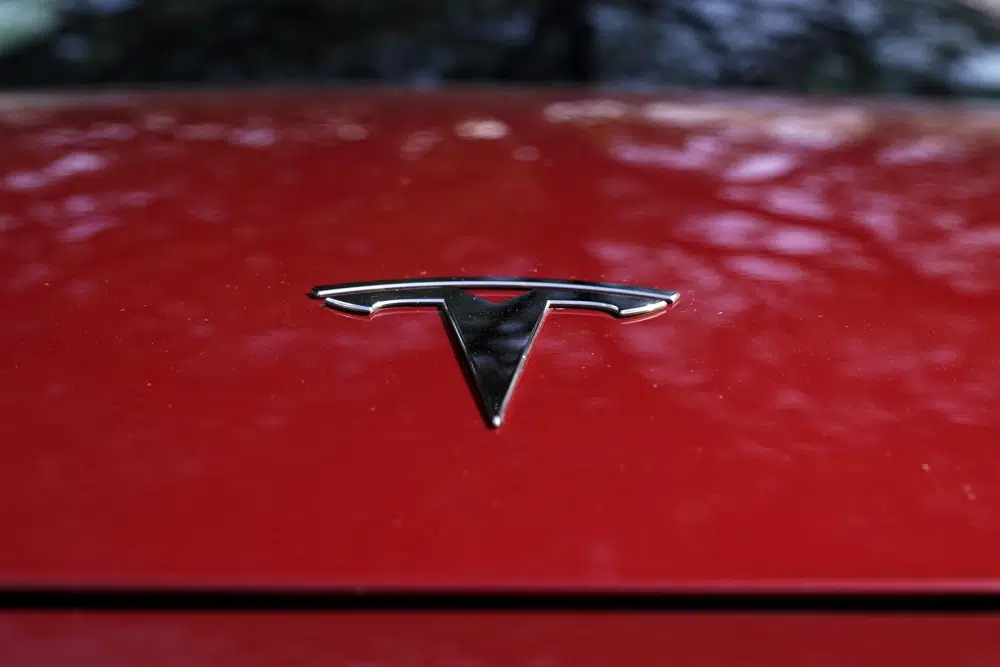

Tesla says it will cut the cost of its next generation of vehicles in half, largely by using innovative manufacturing techniques and smaller factories.
CEO Elon Musk and other executives outlined the goals during a 3 1/2-hour investor day presentation at Tesla’s Austin, Texas, headquarters Wednesday as they presented the company’s third master plan.
The changes could bring the cost of a new generation of vehicles to around $25,000. Many investors were hoping to catch a glimpse of the next generation vehicles, but Musk said they wouldn’t be shown until a proper product unveiling.
“We’d be jumping the gun if we answer your question,” about the new vehicles, he told an analyst.
Shares of Tesla fell nearly 6% in after-hours trading during the presentation that ended just after 8 p.m. Eastern time.
Musk announced that Tesla plans to build a new factory in Mexico near Monterrey. Company executives said it will not take production from any other factories, where Tesla expects to expand production. They said the Mexican plant would build the next generation of vehicles, which also will be built at other factories.
It’s likely that the next generation vehicles will be smaller than the current ones to bring the prices down, but that wasn’t clear from the presentation. Many automakers build smaller vehicles in Mexico to save on labor costs and preserve profit margins.
CFRA Analyst Garrett Nelson attributed the drop in Tesla’s stock to the lack of details on the new vehicles as well as the company’s history of seeing its share price rise ahead of big events, only to fall when the actual news is made.
He said the company’s long-term focus may have disappointed some investors, but he sees Tesla’s vision as justifying its high stock valuation versus other automakers.
“What they outlined really made the case that it deserves to trade at a big premium to the rest of the industry,” he said.
Franz Von Holzhausen, Tesla’s design chief, said the company must make another sharp reduction in costs in order to reach its ambitious electric-vehicle production target of 20 million vehicles per year by 2030. Tesla expects to manufacture 1.8 million this year.
The company, he said, will build the cars in smaller modular units, then bring those units together. The system uses less space. Executives said as a result, its next electric powertrain factory will be half the size of the one Tesla just built in Austin, costing 65% less.
“That also means we can build more factories at the same time,” said Tom Zhu, who leads Tesla manufacturing.
Chief Financial Officer Zachary Kirkhorn said the company cut costs in half between the early Models S and X and the second generation, Models 3 and Y. It’s planning to do that again for the next generation, but also will improve the cars at the same time, he said.
The company also said it would design vehicles so they have fewer wires and transistors, and use fewer expensive rare-Earth metals in the batteries.
“As we improve affordability, the number of customers who have access to our products increases,” Kirkhorn said.
Musk said demand for Tesla vehicles is large, but many who want one now can’t afford them.
Executives said Tesla is unique from other automakers because all the people involved in vehicle design and manufacturing are in the same room. The company also designs and makes many of its parts and software while others rely on tiers of parts supply companies.
The company also said it has opened 10 of its supercharger stations to owners of other electric vehicles as of Wednesday. And it plans to offer a package of unlimited home charging for $30 per month in Texas using wind as the power source.
Kirkhorn said the new master plan includes product advances, rapid volume growth and technology advancement.
Musk began the session saying there is a clear path to sustainable energy on Earth, but it will take changing just about everything from fossil fuel power to electricity generated by renewable sources. The Earth can support more people than it does now without destroying natural habitats or huge austerity, he said.